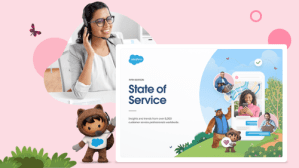What’s Most Needed For Brand Relationships? 95% Indian Customers Say-“Trust”



As their interactions with customers shift online, brands must re-imagine digital-first experiences that engage customers meaningfully and inspire trust in them. Takeaways from the Salesforce 5th edition State of Connected Customer report

Salesforce India
In a rapidly changing environment, trust, values, and integrity increasingly impact customers’ interactions with organisations. This has created a trust-based economy, one in which customers regard businesses as a stabilising factor.
These were some of the crucial findings of the fifth edition of the Salesforce State of the Connected Customer report that explored customer engagement in the digital-first age. The report presents insights from approximately 17,000 consumers and business buyers from 29 countries, including 500 respondents from India.
Highlighting the increased importance of trust in the Indian business landscape, the report shows that nearly 91% of Indian customers believe trust becomes more important in times of change. 78% of the respondents believe that most companies have the capabilities to meet their needs. Furthermore, 81% of the surveyed respondents trust most companies to meet their needs and expectations.
So, how can organisations build trust?
Effective ways to gain customer trust
1. Engage in open and transparent communication
Transparency is critical to building a loyal customer base. It entails communicating with the customer with honesty and integrity – from informing customers of both good and bad news (such as early shipments or out-of-stock notifications), letting them know of product and service developments, and soliciting feedback and making policies transparent.
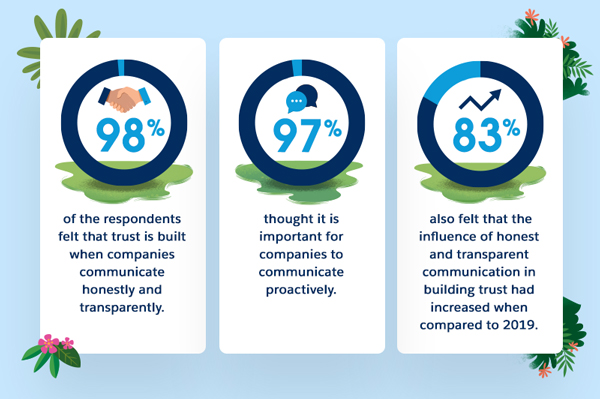
The good news is that a majority of customers have confidence in the businesses they engage with.
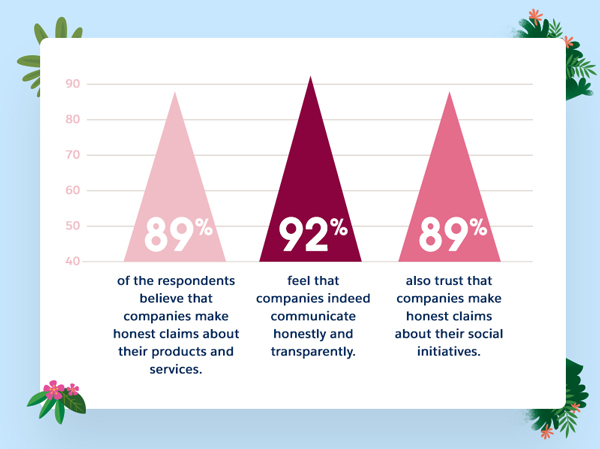
2. Ensure responsible use of customer data
The key to building trust is using customer data responsibly. In fact, consumers are more likely to share their information with a company that clearly explains the use of that information.
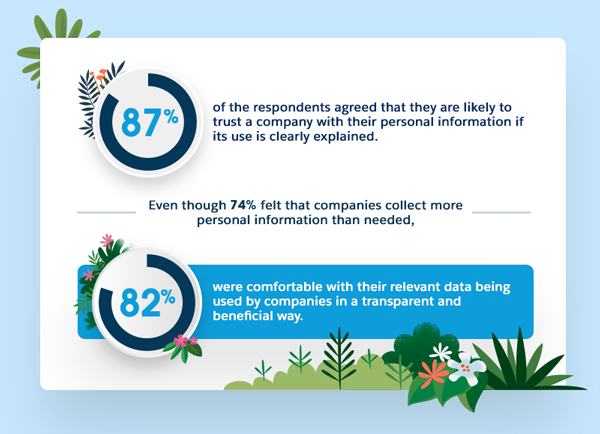
3. Keep the customer at the centre
It is easy for purchasing and sales activities, especially in B2B sales, to feel transactional and impersonal. Customers need to feel that companies understand their unique needs and expectations.
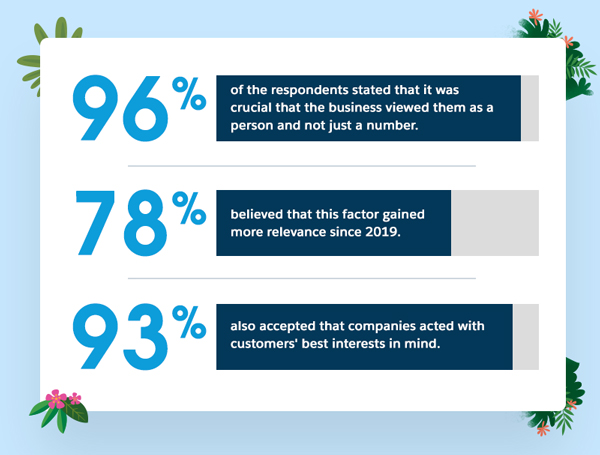
4. Proactively resolve issues
Traditionally, customer service has been reactive. However, proactive customer support can reduce support calls, control communication, and increase customer loyalty. Calling the customer to check for fraudulent activity on their account, reminding them about a renewal of subscription, and following up to check the performance of a product are all examples of proactive action.
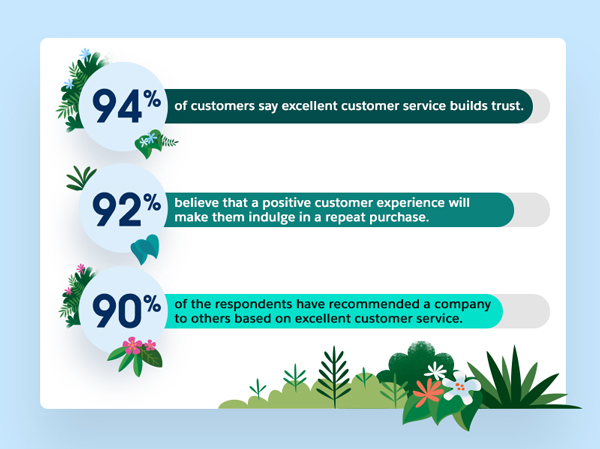
But is only trust enough to push up the sales graph of your company?
Vital factors that influence consumer buying decisions
While trust is a critical cog in the sales machinery, the overall value system of a company influences consumers’ buying decisions. Customers evaluate several factors before they decide to buy from a business. Some of these factors are:
Treatment of employees
How companies treat their employees greatly affects how buyers perceive the company. Providing fair compensation and adequate time-offs, hiring the right people for the right roles and building healthy work relationships are some ways in which companies can treat their employees better.
60% of the respondents believe that how a company treats its employees can influence their buying decisions.
Treatment of customers
From setting and addressing customer expectations to making it easier to contact support and give feedback, there are a million ways in which you can make your customer feel valued. 67% of consumers believe the treatment of customers is vital in how they assess the brand. When you treat your customers well, they reward you with loyalty.
Environmental practices
With climate change assuming more significance in recent times, a company’s environmental practices significantly affect consumer buying decisions. 58% of the respondents find it very important that a company engages in sustainable and environment-friendly practices.
Community involvement
When the company extends its sustainable practices to involve the local community, it creates ample goodwill for the business. Nearly 46% of the respondents say this is an essential consideration in influencing their buying decision.
Online experience
As audiences move online, so does the need to provide a seamless, personalised experience. While 70% of the respondents prefer to engage with companies through digital channels, 73% have revealed that they lose trust in companies when there is a lack of consistency across touchpoints. 72% also expected all companies to have the same information about them.
Digitalisation and trust enhance brand image
As demand grows for seamless digital engagement and personalisation, the need for trust has also increased. Trust helps bring in repeat business, aids in recovery, and creates long-term faithful partnerships. A healthy business relationship built on trust creates long-term customer behaviours that result in profitable sales.














